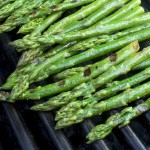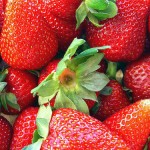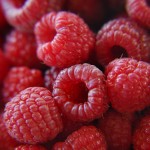Debating a snack prior to your workout? Typically, you don’t need to fuel up with food before starting your fitness routine. Unless you tend to be energy deficient during exercise or haven’t eaten in over two hours, it isn’t necessary to attack the snacks.
Guidelines for Pre-Workout Munching
Do satisfy hunger pangs (or a quick craving) at least 30 minutes, preferably an hour, before exercising.
Do choose snacks that combine carbohydrates and protein, with emphasis on carbs.
Don’t overdo it. A snack that provides the amount of carbs in a half bagel or large banana is sufficient. Protein isn’t a fuel for exercise. A couple tablespoons of peanut butter or a cup of yogurt will do.
Do stash energy bars in your workout tote. Choose ones with 25 to 40 grams of carbs and 10 grams of protein.
Don’t consume hot beverages. The heat often speeds food through the digestive track. Besides, it’s hard to feel motivated after a soothing cup of tea or relaxing mug of coffee, even if it is caffeinated.
Don’t munch on high-fat or high-fiber snacks, both may upset your stomach and decrease your energy.
Do drink 8 ounces of clear fluid within 30 minutes pre- and post-exercise. Sip 4 to 8 ounces of water at 15-minute intervals during a workout, as well. Stay hydrated!
Spring’s Best Pickings
Spring is in the air, and fantastic produce is plentiful. Take advantage of nature’s bounty with fresh fruit and veggies. They are great on-the-go snacks, and provide energy and some hydration. Choosing seasonal is eco-friendly and inexpensive. Plus, the fresher the produce, the more nutrients they contain.
Pack some of these favorites on your way out the door. They’re a smart choice before a workout, or anytime.
 Asparagus: Loaded with folate, high in vitamins A and C, and rich in cancer-fighting antioxidants. Use promptly as flavor tends to lessen after harvested. A great choice for expectant mothers! Roast, grill, sauté, or crunch raw with some light salad dressing.
Asparagus: Loaded with folate, high in vitamins A and C, and rich in cancer-fighting antioxidants. Use promptly as flavor tends to lessen after harvested. A great choice for expectant mothers! Roast, grill, sauté, or crunch raw with some light salad dressing.
Tangerines: Their skin is darker than most other citrus fruit, signaling more beta-carotene is naturally present in its flesh. This tangy-sweet treat can help strengthen vision, boost immune system, and decrease risk of heart disease. Section one and bag it for a sluggish moment in your day. The natural sugar in citrus can help boost energy.
 Strawberries: Packed with numerous health benefits, this power fruit delivers potassium, fiber, and antioxidants, to name a few. Try to buy organic strawberries, if possible. They are farmed using strong pesticides and their texture tends to make cleaning difficult.
Strawberries: Packed with numerous health benefits, this power fruit delivers potassium, fiber, and antioxidants, to name a few. Try to buy organic strawberries, if possible. They are farmed using strong pesticides and their texture tends to make cleaning difficult.
Spinach: Fresh trumps frozen or canned. More nutrients are retained when eaten soon after harvesting. Loaded with vitamins K to promote healthy blood, C to strengthen immune system, and A to help keep vision sharp. A good source of iron when consumed with foods containing calcium and additional vitamin C.
Broccoli: Sharpen your memory with some of these “baby trees.” Studies show this vegetable can help prevent age-related memory decline. Pick dark green florets (the bushy part) for the most concentrated nutrients.
Carrots: Did you know it’s safe to eat the outer most layer of skin? The biggest bang of nutrients is often tossed away in the peelings. Eating carrots just got easier. Scrub off the dirt and enjoy the beta-carotene-rich crunch.
Peas: Rich in iron and vitamin B, peas may offer an energy boost. Choose from sugar snap or snow to stave off fatigue and improve metabolic function.
 Raspberries: This tender fruit is ranked as one of the richest sources of antioxidants in a study conducted by the United States Department of Agriculture. Eat them very fresh. With every passing day after picking, they lose some of their nutritional value.
Raspberries: This tender fruit is ranked as one of the richest sources of antioxidants in a study conducted by the United States Department of Agriculture. Eat them very fresh. With every passing day after picking, they lose some of their nutritional value.
Avocados: With its mild hazelnut flavor and buttery texture, this power fruit delivers almost 20 essential nutrients, including fiber, potassium, vitamin E, B vitamins, and folic acid. Excellent for heart heath, they help consumers meet the monosaturated and polyunsaturated fat recommended by the American Heart Association. Their makeup also assists the body in absorbing nutrients.
Whichever treat you choose, remember to eat proper portions. You don’t want to consume more calories than your workout can burn!
Sources
Avocado nutritional facts found at www.avocado.org.
“Healthy Recipes for Spring’s Freshest Ingredients,” Emily Dorn, at www.fitnessmagazine.com.
“Smart Nutrition Tips for Runners,” Alyssa Shaffer, at www.fitnessmagazine.com.
“Snack Attack: Do You Need to Eat Before Hitting the Gym?” Rich Weil, MEd, CDE, WebMd, The Magazine, Jan/Feb 2010.
Image Credits
Asparagus: www.flickr.com/photos/wwworks/2697879034
Strawberries: www.flickr.com/photos/spin_spin/2105375470
Raspberries: www.flickr.com/photos/photofarmer/272567650
 Fitness & Wellness News Your Source for Fitness News, Wellness News, Health News, and Nutrition News!
Fitness & Wellness News Your Source for Fitness News, Wellness News, Health News, and Nutrition News!



